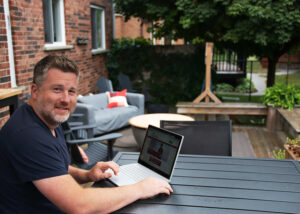Pope Benedict XVI is likely to focus on religious freedom during the first official State visit by a pontiff to Britain, where secularism is growing and Christianity declining.
The Pope is also likely to face scrutiny at a time of global questioning of secrecy in the Roman Catholic Church and the attitudes of its hierarchy on social issues that are seen as out of step with the norms of many people.
Benedict will arrive in the Scottish capital of Edinburgh on Sept. 16 for the first papal visit to Britain since 1982, when his predecessor, Pope John Paul II, drew big crowds on a six-day trip that was described as a pastoral, rather than a State, occasion.
Writing in the Sunday Telegraph newspaper on Sept. 12, the head of the Catholic Church in England and Wales, Archbishop Vincent Nichols, wrote that religious belief should not be seen as divisive, but as “a source of energy and inspiration”.
Nichols wrote, “When we forget, minimize or even reject this inheritance, then we risk losing our profound identity and creating a vacuum of values at the heart of our society.”
He noted Pope Benedict’s insistence that, “secular institutions, and the mentality they encourage, should also be open and positive in their stance towards religious belief.”
In Edinburgh, the Pope will meet Queen Elizabeth II and then head to London.
On Sept. 17, Benedict will address both Houses of Parliament at Westminster Hall, where two of the Catholic Church’s greatest martyrs, Thomas More and Edmund Campion were tried in the 16th century. Here, the Pope is expected to defend the place of religion in society.
Another highlight of the visit takes place on 19 September at a beatification Mass for Cardinal John Henry Newman (1801-1890) at Cofton Park, Birmingham, in central England. Beatification is often seen as a step towards sainthood.
Newman was an Anglican priest who initially sought to bring the Church of England back to what he saw as its Catholic roots. Still, in 1845, after a period of self-questioning and doubt, he was received into the Roman Catholic Church.
Speaking to pilgrims on Sept. 12 at his summer residence of Castel Gandolfo, Pope Benedict asked for prayers for his visit to Britain and he praised Cardinal Newman. “His personality and his teachings can be a source of inspiration for our times and for ecumenism,” said Benedict.
The Guardian newspaper had earlier reported that the Pope will face a sceptical audience in Britain. “When Benedict XVI lands at Edinburgh airport on Thursday, he is unlikely to get the rapturous reception that greeted John Paul II on his visit to Britain in 1982. Over the coming days, the Pope will be faced with protesters demanding action on clerical sexual abuse of children and voicing anger at the 20 million British pounds cost of the state visit, and must also contend with public apathy.”
During his visit, the Pope is to hold talks with the Archbishop of Canterbury, Rowan Williams, the British prime minister, David Cameron, as well as three former prime ministers, Tony Blair, Gordon Brown and Margaret Thatcher.
British police will be out in force because of planned protests about the papal visit.
“The Protest the Pope campaign is calling on the British government to disassociate itself from the Pope’s intolerant teaching on issues such as women’s rights, gay equality and the use of condoms to prevent the spread of HIV,” said gay and human rights activist Peter Tatchell. He was commissioned by Channel Four television to produce a documentary on the Pope to be broadcast before the visit.
The Pope will also be under pressure to allow women and married men to become priests.
Christina Rees, an Anglican and a campaigner for women’s ordination, told ENInews: “If the Pope were to open Roman Catholic orders to women, also to married men, it would have a tremendously positive and transformative effect on a global scale.”
She said, “Numbers of clergy would go up again and I am bound to say that sex abuse scandals on the scale we have discovered and clergy living double lives would become a thing of the past.”
Rabbi Jonathan Romain of the Maidenhead synagogue noted controversies under Pope Benedict that included the reintroduction of a Latin Mass referring to “perfidious Jews”, and the lifting of the excommunication of breakaway Catholic Bishop Richard Williamson, who has denied that Jews died in Nazi gas chambers.
On the other hand, Romain told ENInews, “There is his commitment to good inter-faith relations, along with his obvious warmth when he visited the Rome synagogue. The stakes are high because it would be very regrettable if the tremendous progress made in Jewish-Christian relations over the last 50 years might be reversed.”







Leave a Reply
You must be logged in to post a comment.